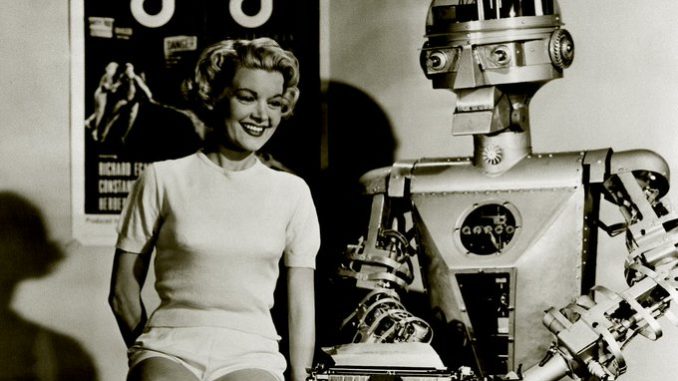
The biggest tech story of the year is shaping up around the seemingly sudden arrival of AI chatbots into mainstream attention: piggybacking off last year’s viral reception to text-to-image generators like DALL-E 2, the launch of OpenAI’s ChatGPT in November has since spurred not only widespread media coverage and netizen adoption, but also an industry-wide arms race. Whatever polite corporate doffing made to AI’s thicket of ethical ramifications over the past few decades disintegrated nearly overnight in favor of Silicon Valley’s primal fear of competition, and we now live in a society where Microsoft’s newly AI-powered Bing (“Sydney,” to her friends), Google’s Bard, Meta’s LLaMA, and Snapchat’s My AI (which at least allows you the dignity of naming your chatbot yourself) seem poised to transform us all. The AI future feels nigh, if not terribly optimistic.
In an era where major breakthroughs in tech render either inscrutable—admit it, you still don’t know what a blockchain is, do you?—or hopelessly misguided (see: the metaverse), we as a public can at least intellectually get behind talking robots. At last, honestly! We’re kind of used to it already: After spending the greater part of Web 2.0 accepting the sleight of hand that invisible, algorithmic forces exert on our day-to-day, the consumer-friendly AI-powered machinations of driverless cars and actually efficient task assistants and decent predictive-text features has become a foregone conclusion. But now that it’s here—un-wait-listed, and off whatever leash that reputational risk posed in the past—we as a general public appear to be girding our loins in dread.
Over the past few weeks, we’ve witnessed the first cresting of media coverage around this new generation of AI chatbots, most of which has coalesced around two categories. The first is the stunt journalism, most famously executed in the New York Times’ conversation with Sydney, that can apparently turn even the most hard-bitten tech heads in the industry not a little flustered (“In the light of day, I know that Sydney is not sentient, and that my chat with Bing was the product of earthly, computational forces—not ethereal alien ones,” NYT columnist Kevin Roose wrote, and you can almost picture him reciting it to himself in a panicked affirmation).
